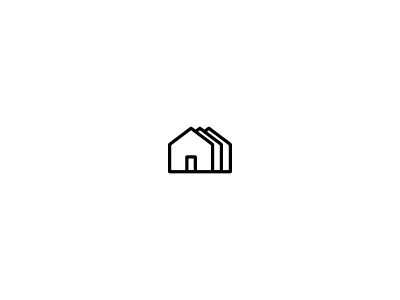As an alternative to traditional site-built houses, modular homes are becoming increasingly popular. With advancements in construction technology and a growing emphasis on sustainability, many prospective homeowners are considering modular housing. However, as with any housing option, there are advantages and drawbacks to consider. In this article, we will explore the pros and cons of modular homes, helping you determine if they are the right fit for your needs.

What Are Modular Homes?
Prefabricated homes, sometimes referred to as modular homes, are built in factories in parts or modules. These parts are assembled on a solid foundation after being delivered to the home site. Modular homes, as opposed to mobile homes, are constructed in accordance with the same construction codes as conventional stick-built homes. They are a desirable choice for many customers because they provide a balance between effectiveness, cost savings, and quality. Understanding the modular homes pros and cons is crucial before making a decision.
Read also: Are Manufactured Homes a Good Investment?
Pros of Modular Homes
1. Cost effectiveness
One of the biggest advantages of modular homes is their cost-effectiveness. Since these homes are built in a controlled factory environment, manufacturers can purchase materials in bulk, reducing overall costs. Additionally, labor expenses are lower because construction time is significantly shorter than that of traditional homes. As a result, modular homes can be an affordable solution for those looking to own a home without breaking the bank.
2. Speed of construction
Modular homes can be built much faster than traditional homes since the construction process is streamlined and not affected by weather conditions. This means that homeowners can move in sooner, saving time and reducing stress. Typically, a modular home can be completed within a few weeks, making it an excellent option for those in urgent need of housing.
3. Quality control
Another major benefit of modular homes is the high level of quality control. Each module is put through a thorough inspection and quality check process because they are manufactured in a factory. This guarantees that, prior to being delivered to the final location, the house satisfies building codes and industry requirements.
4. Energy efficiency
It is common for modular homes to be designed with energy efficiency in mind. High-quality insulation, energy-efficient windows, and sustainable building materials are some of the features many manufacturers incorporate to reduce energy consumption. As a result, modular homes can lead to lower utility bills and a reduced carbon footprint. Additionally, because of their controlled construction process, they often have fewer gaps and leaks compared to site-built homes, further improving energy efficiency.
Read also: What Is A Prefab House? Pros, Cons and Cost
Cons of Modular Homes
1. Financing and insurance challenges
One of the cons of modular homes is the difficulty in securing financing and insurance. While modular homes are considered real property and typically qualify for traditional mortgage loans, some lenders may be hesitant to offer financing due to misconceptions about their value and durability. Additionally, insurance companies may charge higher premiums for modular homes compared to stick-built houses.
Read also: Mobile Home Insurance: Your Gateway to Secure Living and Smart Savings
2. Depreciation issues
Some consumers are concerned about depreciation, even though modular homes often hold their value well. Modular homes could not increase in value as quickly as traditional homes, which typically do. Part of the reason for this is continuous misunderstandings regarding their longevity and resale value. Depreciation issues can be lessened, though, with appropriate upkeep and strategic site selection.
3. Limited customization
Even though modular homes can be customized to some extent, they are frequently less customizable than conventional site-built homes. Although a variety of floor layouts are offered by many modular home manufacturers, significant structural changes might be difficult. A modular home might not be the ideal choice if you want a completely customized house with distinctive architectural elements.
4. Perception
Despite their growing popularity, modular homes still face a certain level of stigma. Some people mistakenly associate them with mobile homes or lower-quality construction. This misconception can make it more challenging to sell a modular home in certain markets. However, as more people become aware of the benefits of modular housing, this perception is gradually changing.
Evaluating Your Decision: Factors to Consider
Before committing to a modular home, it’s essential to evaluate your specific circumstances. Here are key factors to consider:
Budget and Financing
Your financial situation plays a crucial role in determining whether a modular home is a suitable choice. Research different financing options, speak with mortgage lenders, and compare costs with traditional housing to ensure you make an informed decision.
Read also: Decoding the Puzzle of Mobile Home Financing
Lifestyle and Needs
Consider your lifestyle and housing needs. A modular home can be the best option if you value cost, speedy construction, and energy efficiency. However, you might want to look at alternative housing options if architectural uniqueness and customization are important to you.
Future Value
Think about the long-term value of your investment. While modular homes can be a cost-effective housing solution, their resale value may be influenced by market perceptions and location. Choosing a well-established neighborhood and maintaining your home properly can help enhance its future worth.
Conclusion
The pros and cons of modular homes highlight the various factors to consider when deciding on this type of housing. While modular homes offer affordability, speed of construction, quality control, and energy efficiency, they also come with challenges such as financing difficulties, depreciation concerns, limited customization, and lingering stigma.
Ultimately, choosing a modular home depends on your individual needs, financial situation, and long-term goals. By carefully weighing the modular homes pros and cons, you can make an informed decision that aligns with your lifestyle and future aspirations.


